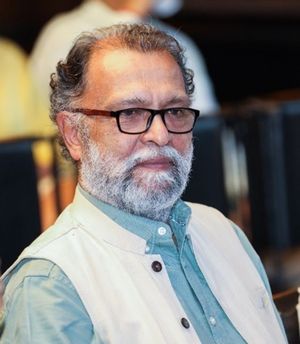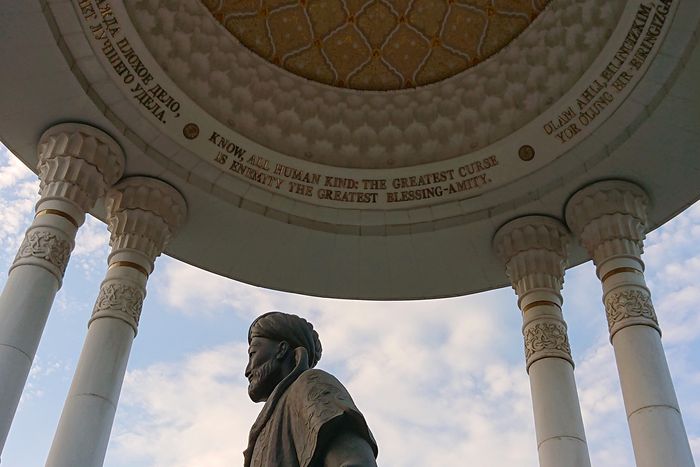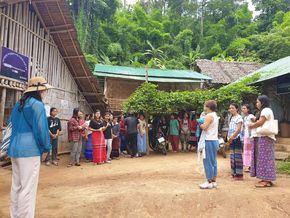By Christina Kamp, freelance writer
In a world shaken by war, conflict and increasing geopolitical tensions, peace seems to be but a distant dream. Effective peace initiatives are more pertinent than ever. For almost four decades, the International Institute for Peace through Tourism (IIPT) has been propagating tourism as a tool for peace. In our interview, IIPT’s new president Ajay Prakash shares his perspectives on tourism as “the world’s first global peace industry”.
TW: In our globalised world, media, migration and tourism all contribute to making the unfamiliar familiar. It is not the known and the unknown that defines “Us” and “Them”. Divisions and hostilities exist—or are fabricated—even between brothers and sisters or next door neighbours. Under these circumstances, how does the concept of “bringing people together” in tourism still remain a promising avenue to peace?
Ajay Prakash: The mission of IIPT is to spread greater awareness of the power of tourism as a tool for peace and a force for good. When you travel with an open mind and a gentle heart you quickly discover that the differences that seem to divide us pale into insignificance before the similarities that we all share. Tourism is the only industry which is hundred percent people centric; its sole aim is to enable people to experience the diversity of our planet and its inhabitants. If the industry stakeholders can sensitize travellers to the underlying interconnectedness of humanity in spite of cultural, linguistic or religious differences, we could go a long way in engendering global understanding and acceptance of “the other.”
Mark Twain famously wrote “Travel is fatal to prejudice, bigotry, and narrow-mindedness, and many of our people need it sorely on these accounts. Broad, wholesome, charitable views of men and things cannot be acquired by vegetating in one little corner of the earth all one's lifetime.” If people get out of their homes and their comfort zones they come back wiser and perhaps more compassionate.
TW: While in conflict situations “an eye for an eye” may lead to escalation, wouldn’t more reciprocity (in a positive sense) be needed in tourism? How can tourism become more effective in contributing to peace, given the global imbalances in who can travel and who cannot?
Ajay Prakash: Tourism spending is a discretionary expenditure, so it is obvious that not everybody can travel. But international tourist arrivals crossed one billion a couple of years ago and domestic travel numbers are hugely more. These are significant numbers. While reciprocity is to be desired, the movement of people is never equal in both directions. Certain destinations attract great numbers while markets from where these travellers originate might not attract a corresponding number.
Coupled with this is the current problem of “overtourism” where host communities are reacting adversely to the unchecked inflow of tourists. Mass tourism, therefore, carries the risk of creating conflict if it is not handled with sensitivity to the needs of the hosts. If tourism is to fulfil its function as a vehicle for peace, it has to be done with sensitivity to carrying capacity and with a genuine concern to preserve the uniqueness of the destination. One way to achieve that is to disperse tourists from the well-known sights to more diverse and lesser-known destinations which would actually benefit from the increased footfalls. Like sustainability, the travel and tourism industry needs to incorporate peace as a higher paradigm of tourism into the core of their business practices.
TW: How can it do so? As IIPT has been fostering and facilitating tourism initiatives which contribute to international understanding and cooperation, could you please share with us some “best practice” in which tourism successfully supports efforts for peace in difficult conditions?
Ajay Prakash: When the rebels of the Revolutionary Armed Forces of Colombia (FARC) agreed to lay down arms, the alternative that was offered was tourism development. Kashmir in India is also a prime example of how tourism has triumphed over terrorism. Infrastructure development, economic stability, cultural exchanges and empowerment of local communities all flow from increased tourism activity; so while tourism alone may not resolve conflicts, it can be a powerful tool in a broader strategy for peace building and conflict resolution.
TW: According to IIPT, every traveller is a potential “Ambassador for Peace”. What can and should tourists do to do realise this potential?
Ajay Prakash: The first rule is to be sensitive to the mores of the host community. Remember, you are a guest in their home! Dress appropriately, behave respectfully. Be open to new ideas and new experiences. Be ready to engage the locals in conversation. Often they’re as curious about you and where you come from as you are about them and their country. The best way to summarise this is to reproduce the IIPT Credo:
IIPT Credo of the Peaceful Traveller:
Grateful for the opportunity to travel and experience the world and because peace begins with the individual, I affirm my personal responsibility and commitment to:
- Journey with an open mind and gentle heart;
- Accept with grace and gratitude the diversity I encounter;
- Revere and protect the natural environment which sustains all life;
- Appreciate all cultures I discover;
- Respect and thank my hosts for their welcome;
- Offer my hand in friendship to everyone I meet;
- Support travel services that share these views and act upon them and;
- By my spirit, words and actions, encourage others to travel the world in peace.

Ajay Prakash, Photo: ©Dipen Gosar
Ajay Prakash took over from Louis D’Amore as President of the International Institute for Peace through Tourism (IIPT) in September 2023. He is the CEO of Nomad Travels in Mumbai, President of the Travel Agents Federation of India (TAFI) and a board member of the World Travel Agents Associations Alliance (WTAAA).



